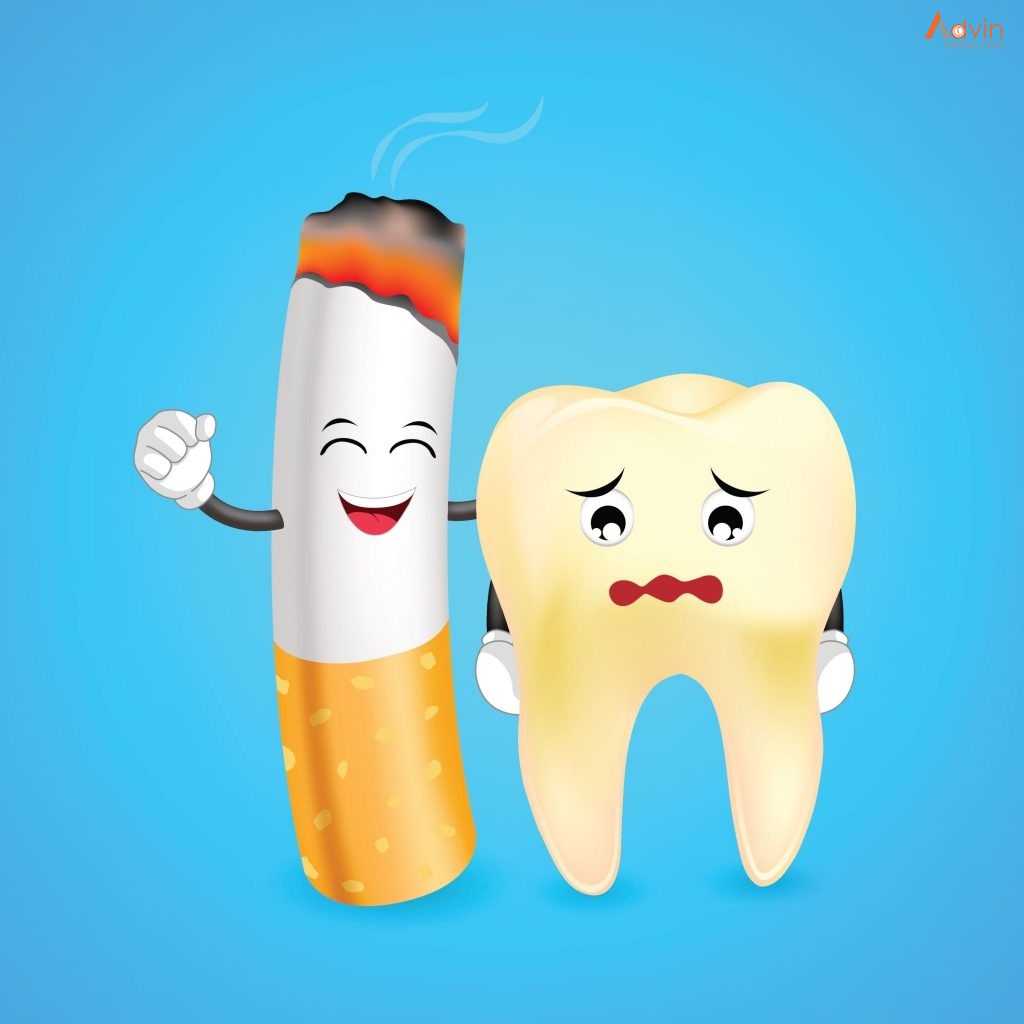The Effects of Tobacco Use on Oral Health
China consumes and produces more tobacco than any other country in the world. The next country in line is India. According to the WHO Global Report on Mortality, about 35 per cent of Indians over the age of 15 use tobacco and over 10 lakhs Indians die every year from tobacco-related diseases. Although the consumption of tobacco has declined over the past 2-3 years, the north-eastern states of India have been reported to have the highest consumption of tobacco in India.
Most of us know that tobacco consumption is harmful to health. A lot has been written about the effects of tobacco on health. Here we’ll talk about tobacco effects on our oral health. Some of the common oral health issues are as follows:
Bad Breath
The smoke particles left behind after smoking a cigarette stay in the mouth for quite some time leading to bad breath, which is commonly called stale smoker’s breath. Smoking or chewing tobacco also decreases the flow of saliva. Dry mouth is a breeding ground for bacteria thereby causing bad breath.
Tooth Discoloration
Nicotine is easily absorbed by your teeth. Although nicotine is colourless, it combines with oxygen to change the colour of the teeth from white to yellow. In people who chew tobacco, the nicotine combines with saliva to form a dark brown liquid which when allowed to stay in the mouth for long can stain the enamel.
Gum Disease

Smoking or chewing tobacco affects the attachment of the gums to the teeth. This is because the plaque formed near the gum line interferes with the gum tissue cells leaving your immune system compromised and making it harder for your body to fight off infections. The presence of nicotine reduces the blood flow to the gums, thus making you susceptible to oral infections. Particles left behind in the mouth increases the symptoms of dry mouth, providing an optimum environment for the bacteria to proliferate and cause inflammation. Tobacco use also affects the bone structure of the mouth as well as gum recession. These factors can increase your risk of jaw bone infection, which may lead to loss of teeth.
Lowered Success Rate of Dental Implants
A cosmetic procedure, such as dental implants, rely on having healthy, adequate bone in place to support the teeth. In smoker or tobacco users since the immune system is compromised the healing process take longer than usual. The same is the case if the tooth is extracted or if an oral surgery is performed. The recovery time is delayed.
Increased Chances of Developing Oral Cancer
Tobacco consumption contributes to 80 to 90% of diagnosed oral cancers. Therefore, mouth/jaw cancer is the number one reason why you should quit smoking or chewing tobacco. Although, tobacco causes many other health issues, they are less life threatening than cancer. Tobacco finds its way to the glands of your mouth and is easily filtered into your mouth tissues. Constant use of tobacco means constant absorption and filtration into the system making way for mouth cancer to spawn.
How to save yourself from facing these oral health issues? The answer is simple, just quit smoking or chewing tobacco. Here’s how you can overcome this habit:
Make a plan to quit the habit

You need to have a plan in place because with a plan handy it is easier to stay focused and motivated to quit. You can build your own plan or research online for a quit plan that’ll work for you.
Stay busy
Being busy is a great way to distract your mind and keep it occupied. Some of the activities you should try to keep you busy are:
- Exercise
- Movie or dinner with non-smoking friends and family
- Walk
- Chew gum
- Take deep breaths
- Drink lots of water
Stay away from triggers
People, things, places, and situations are your triggers that make you give in to your urge to consume tobacco. Here are some tips to stay away from the triggers:
- Get rid of cigarettes, lighters, and ash trays or anything that remotely reminds you of tobacco.
- Caffeine can make you jittery. Avoid it, try drinking water instead.
- Rest well and eat healthy.
Stay positive
Quitting doesn’t happen in a day. The best approach to take is one day at a time. Most importantly, stay positive. Prepare your mind to quit first. Set a date and stick to it.
Ask for help from family and friends
Sometimes it gets difficult to rely solely on your willpower. Let your friends and family in. Ask them to support you on your plan to quit. Let them know what kind of support you’ll need from them. They can be a solid support, especially when you are going through a rough phase.



